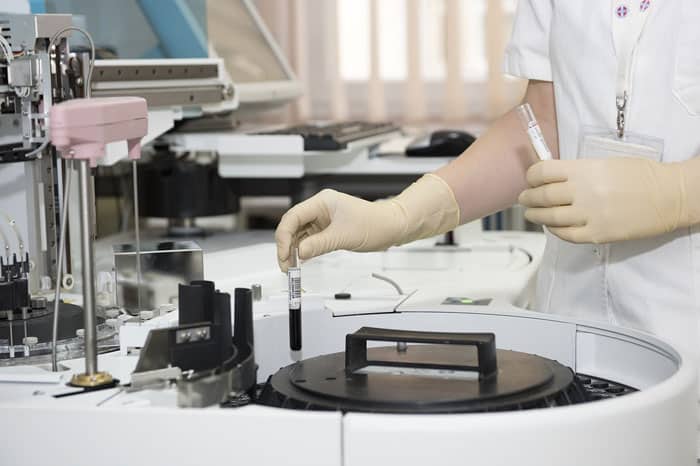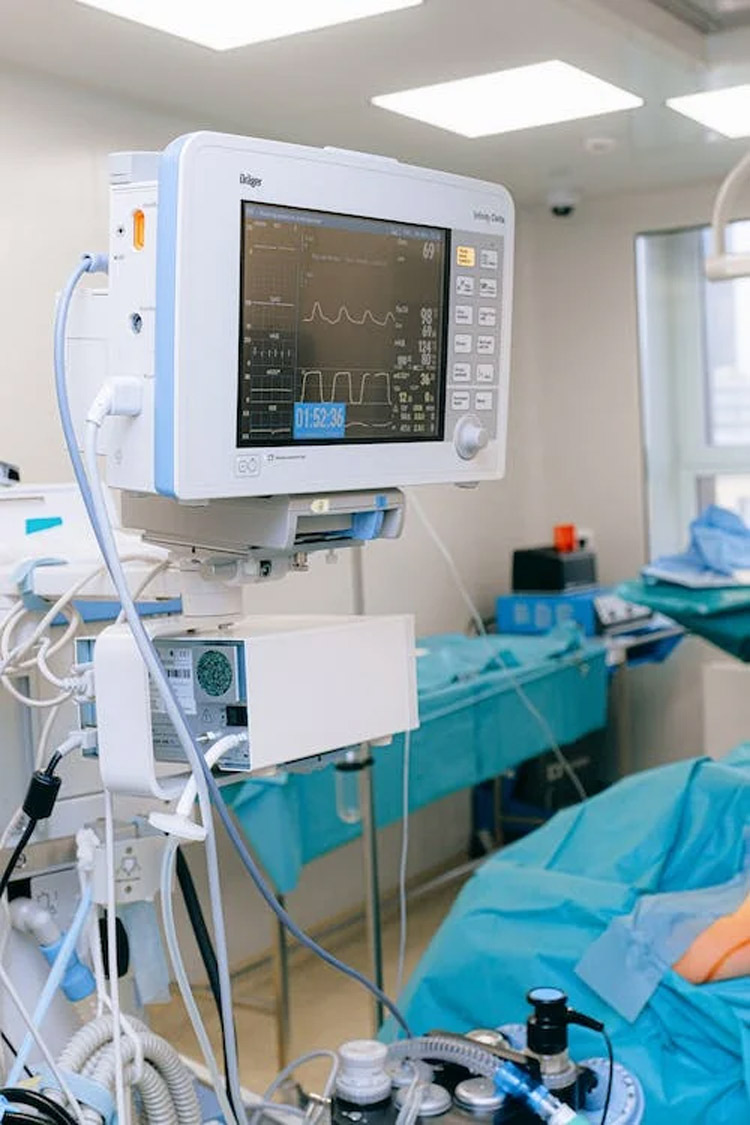
This post provides detailed information on the bench technician job description, including the key duties, tasks, and responsibilities they commonly perform.
It also highlights the major requirements you may be expected to fulfill to be hired for the bench technician role, as well as the salary potential of the position.
What Does a Bench Technician Do?
A bench technician, sometimes referred to as a laboratory technician or lab assistant, provides critical support for daily laboratory operations.
In this hands-on role, the bench technician performs routine analytical tests, experiments, and quality control checks by precisely following protocols and procedures.
The bench technician job description involves sample preparation, test performance, data collection/analysis, lab maintenance, and upholding quality standards.
The bench tech’s attention to detail and organization enables the smooth functioning of laboratories across industries.
Bench technicians typically report to a senior scientist or laboratory manager who provides supervision and direction for their day-to-day workflow.
The lead scientist or lab manager oversees the larger projects and initiatives that the bench technician’s work supports.
Bench technicians work in a wide variety of lab environments including university and corporate research labs, clinical hospital labs, pharmaceutical R&D labs, food and beverage quality control labs, forensics labs, environmental science labs, and more.
Any setting requiring careful analytical testing will employ dedicated bench techs.
Most bench technician jobs require an Associate’s degree in biology, chemistry, biotechnology, or a related science/health field.
Hands-on training and lab coursework is highly valued.
Some research-based roles may require a Bachelor’s degree. While voluntary certification can enhance one’s credentials, it is not strictly required.
Ongoing training to stay current with the latest industry standards is essential.
The core functions of a bench technician revolve around conducting routine tests and experiments, analyzing samples, recording observations, maintaining equipment and inventory, upholding safety protocols, and ensuring quality control.
Bench technicians may also be tasked with duties like technical writing for study reports, troubleshooting lab equipment issues, ordering supplies, assisting in training other techs, and remaining current through continuing education.
Stringent quality benchmarks across industries globally demand skilled bench technicians to validate product safety, efficacy and material integrity.
Their work propels innovation by equipping R&D scientists with reliable data.
Bench techs also support environmental protections and disease detection – upholding public and environmental health.
Employers seek bench technicians who have excellent attention to detail, organizational abilities, critical thinking skills, manual dexterity, stamina, and technical competencies. Strong written and verbal communication skills are also valued to collaborate across lab teams.
Bench technicians must comply with safety and quality protocols mandated by oversight agencies such as Occupational Health and Safety Administration (OSHA), Clinical Laboratory Improvement Amendments (CLIA), International Organization for Standardization (ISO) and more depending on their lab’s specialization.
Bench Technician Job Description Example/Sample/Template
The bench technician job description consists of the following duties, tasks, and responsibilities:
- Prepare chemical solutions, reagents, stains, culture media and other materials required for experiments
- Collect, label and log test samples such as biological specimens, manufactured materials or environmental samples
- Set up, calibrate and maintain laboratory equipment such as microscopes, centrifuges, balances and spectrometers
- Perform routine analytical tests on samples following standardized protocols and procedures
- Carefully measure out quantities of various solutions and compounds required for tests
- Dispose of chemicals and biohazardous waste properly per safety guidelines
- Monitor experiments in progress, track timing of procedures and record qualitative and quantitative observations
- Interpret color changes, precipitates and other reactions in chemical processes and diagnostic tests
- Capture, organize and statistically analyze experimental data
- Verify the validity of test results by running quality control samples
- Enter test data into laboratory information systems and databases
- Present scientific data visually through figure creation, including charts, infographics and electrophoresis gels
- Write technical summaries and end-of-study reports on experiments per internal guidelines
- Troubleshoot problems with equipment, testing procedures or results and take corrective actions as needed
- Order and track inventory levels of laboratory supplies, chemicals and disposables to maintain stock
- Ensure laboratory equipment is properly maintained through cleaning, calibration and monitoring
- Provide training and oversight to new laboratory technicians or students
- Ensure laboratory policies, safety protocols and quality standards are being followed at all times
- Coordinate the pickup and delivery of samples requiring specialized analysis at outside laboratories
- Adhere to good documentation practices by thoroughly recording details of laboratory procedures performed
- Comply with applicable state and federal regulations for specific laboratory disciplines such as CLIA for clinical labs
- Stay current with the latest industry best practices, safety standards and testing methods
- Foster positive working relationships with other lab personnel, vendors, clients and site visitors
- Participate in continuing education activities to upgrade knowledge and technical skills
- Monitor lab supply inventory and place orders with approved vendors as needed.
Bench Technician Job Description for Resume
If you have worked previously or are currently working as a bench technician and are making a new resume or CV, then you can craft a compelling Professional Experience section for the resume by applying the sample bench technician job description provided above.
You can highlight the major duties and responsibilities you have carried out or are currently performing as a bench technician in your resume’s Professional Experience by utilizing the ones in the bench technician job description example above.
This will show to the recruiter/employer that you have been successful performing the bench technician job, which can greatly enhance your chances of being hired for the new position that you are applying for, especially if it requires someone with some bench technician work experience.
Bench Technician Requirements: Skills, Knowledge, and Abilities for Career Success
Here are important requirements you may be expected to meet to be hired for the bench technician role:
- Knowledge of scientific and mathematical principles, concepts and methods
- Understanding of laboratory hazards, safety practices and quality control
- Ability to accurately follow protocols, track precision and detect errors
- Skill working with lab instruments and ability to troubleshoot issues
- Attention to detail and organization for recording accurate notes
- Analytical and problem-solving skills for interpreting experiments
- Ability to spot anomalies in processes and results and determine causes
- Methodical scientific thinking approach
- Ability to master new laboratory information systems and equipment
- Competence working with data analytics, statistical analysis software
- Database entry and management, data visualization capabilities
- Clear written and verbal communication skills for collaborating with colleagues, reporting findings
- Careful listener able to translate needs into action
- Cooperative contributor able to work well cross-functionally
- Flexibility to shift priorities and procedures as dictated by supervisor
- Creativity and curiosity to continue learning
- Sustained focus required for attention to detail during lengthy tests
- Physical stamina for extended periods of sitting, standing, repetitive tasks.
Bench Technician Salary
The typical annual salary for bench techs across the U.S. was $51,520 in May 2022 according to the official government reports – US Labor and Statistics.
Now, if you’re willing to move, you can do even better. The five states that pay bench techs the most are: California ($70,300), Washington ($67,240), Oregon ($66,970), Massachusetts ($66,510), and Nevada ($65,910).
So, the bottom line is that Bench Tech seems like a pretty stable career with decent money. The pay may not be six figures, however, it is enough to make a decent living, especially if you move to a place that pays well.
And with demand growing over 10 percent in the next 10 years, job security is not looking too bad either.
Conclusion
This page provides helpful insight into the job description of a bench technician for individuals considering launching a career supporting critical laboratory operations.
As a bench tech, you’ll enable cutting-edge research, uphold patient safety through diagnostic excellence, and ensure quality manufacturing – making an impact behind the scenes through dedication to scientific craft.
With strong technical skills, attention to detail, critical thinking and communication abilities, you’ll find this hands-on role both challenging and rewarding.
Your contributions will be valued across domains like biopharma research, clinical diagnostics, and food and environmental testing, and more.
The promising job growth and salary potential provide stability and room for advancement over time as well.
With commercial laboratory revenues growing steadily and innovations emerging globally across scientific fields, qualified bench technicians will continue seeing strong demand.
If you’re intrigued by using your analytical capabilities to propel scientific discovery and innovations that change lives, then the indispensable support role of a bench technician may be an ideal place to begin.
You can reach out to laboratories in your area to learn more.
This post is also useful to recruiters/employers needing to make a detailed job description for the bench technician position, for use in hiring for the role.
They can apply the sample bench technician job description provided above as a template in making their own.












